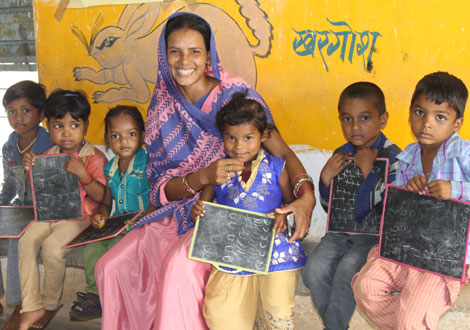Tara: A Guiding Star in the Lives of Little Children
The Beginning:
Shy and quiet, Tara joined the Self Help Groups* (SHGs) facilitated by PRADAN nearly a decade back on the advice of her sister-in-law. She was newly married and a stranger in the village of Atarwa in Singrauli District of Madhya Pradesh. SHGs became the platform for solidarity and mutual support for Tara and other women. Being the only literate member in the group, she introduced her fellow women to letters and numbers, and taught them to sign their names.
“It was my mission to ensure that everyone was able to sign and not give thumb impressions anymore. They should do basic calculations and count their savings on their own”, she recalls.
One day, SHG member, Santa said, “You should also teach our children in Anganwadi (pre-primary school) what you teach us”
However, the government Anganwadi centre was always closed with no regular staff. Tara applied for the post of Anganwadi worker. The existing space, near an open well, was not conducive. She negotiated with the school and got a makeshift arrangement there. This was the start of her engagement with children below the age of 5 years.
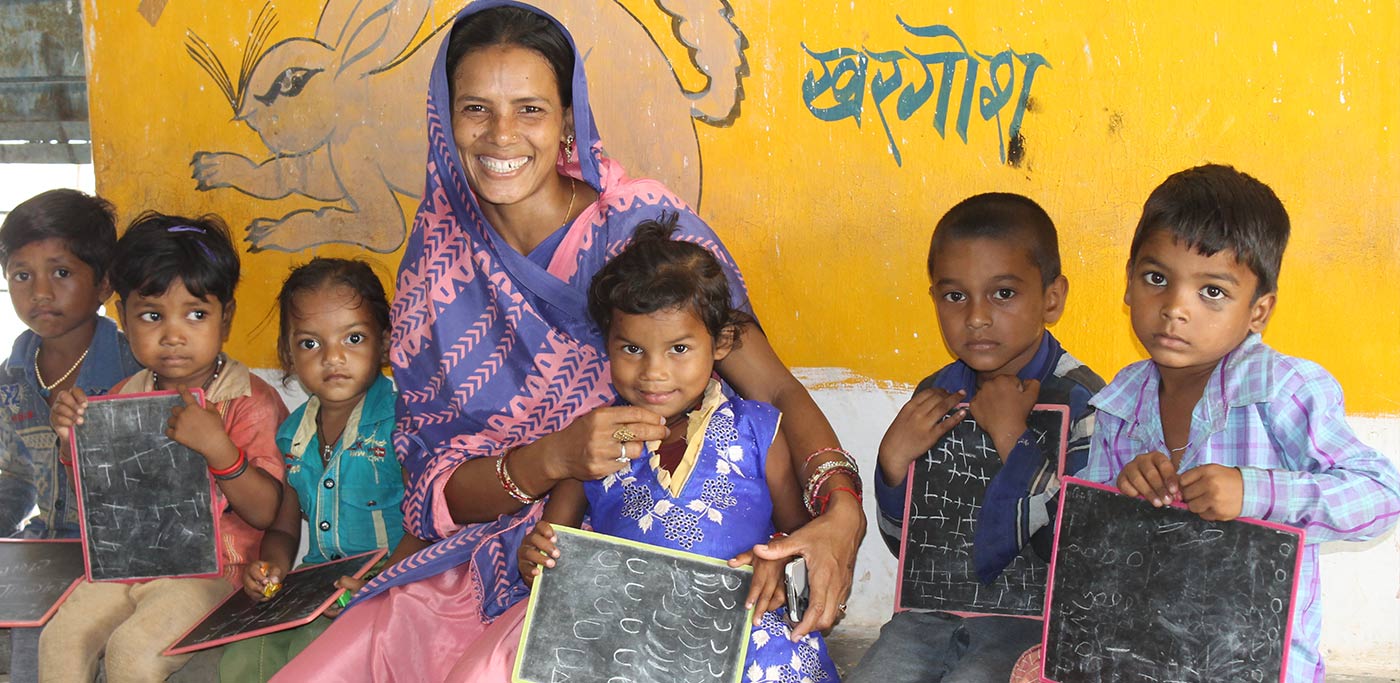
Photo Credit: Souparno Chatterjee
The Tragedy:
Tara was thrown into an abyss in November 2014 when her husband died untimely. She was left alone with 4 daughters; the youngest was just a year old. She was shattered and her spirit broke. How could she raise them without their father? For weeks, she hid from the world unable to comprehend the change in her life.
The Undying Spirit:
The women of her SHG stood firm with her. This solidarity could withstand any tragedy.
“For more than a month I could not even think of stepping out of the house. My daughters would ask for their father. The support I received from the women of my SHG at that point in time, was of immense meaning to me. It gave me the strength to face the world again. I realised that if I withdraw, the children will suffer. I opened the Anganwadi centre once again.”
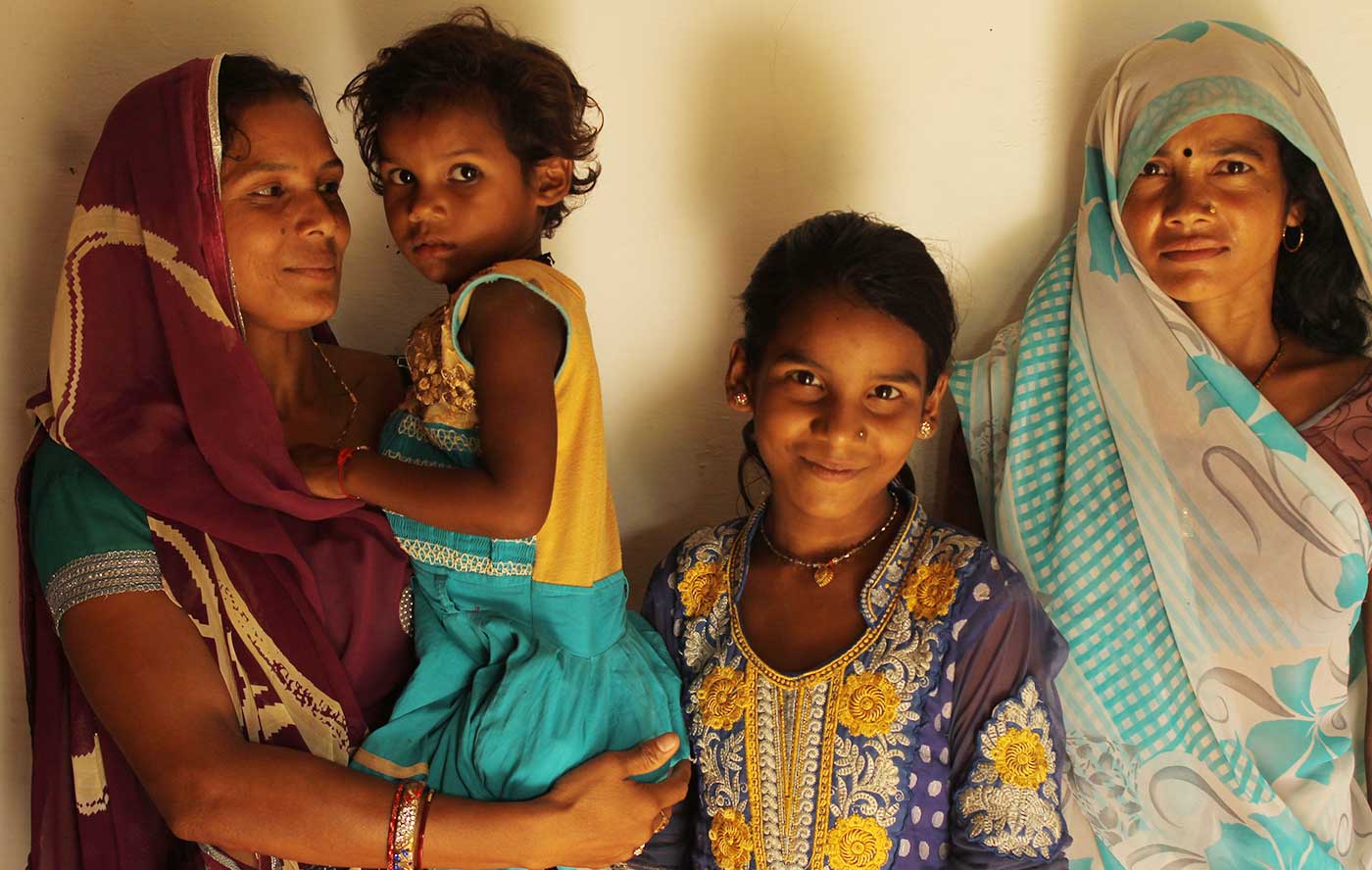
Photo Credit: Souparno Chatterjee
But, this time, there was a backlash. The fact that a young widow was going out of the house to work was akin to breaking all social mores of the area. The sisterhood of the group and an empathetic father-in-law helped her weather this storm too.
Tara took up the work in Anganwadi with renewed zest and her young daughters also accompanied her to the centre. Every child’s birthday was celebrated, competitions were organised and children were given little rewards to cherish. The routine health check-ups and preventive measures were all done regularly.
In schools in this area, 3rd or 4th standard students fail to recognise alphabets or numbers adequately. In fact, identifying colours or shapes was also equally difficult for them. Tara decided to teach these skills in her Anganwadi with rigour, to equip them with knowledge necessary to navigate school with ease.
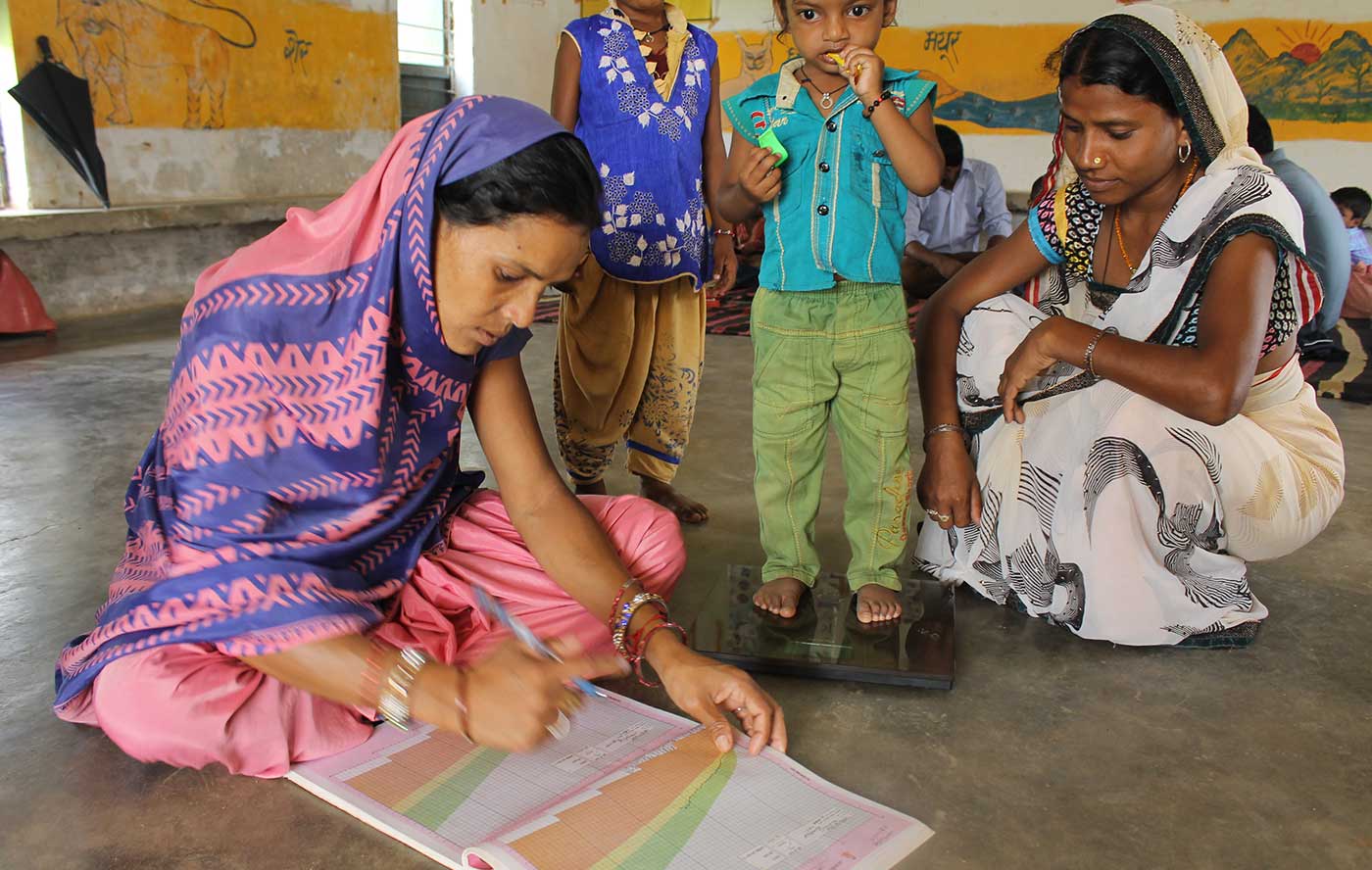
Photo Credit: Souparno Chatterjee
“Anganwadi can help the children learn alphabets and other basic aspects of education much faster and effectively. I honour the statement ‘Anganwadi shala-poorva shiksha ke neev hai’ (Anganwadi is the pre-school foundation of education)”, says Tara proudly.
Winds of Change:
Many parents were simply indifferent to sending their children to Anganwadis. Tara, initially, had to go from door to door bringing children to the centre. Today, about 25 children visit the centre regularly. In many cases, their parents drop them there.
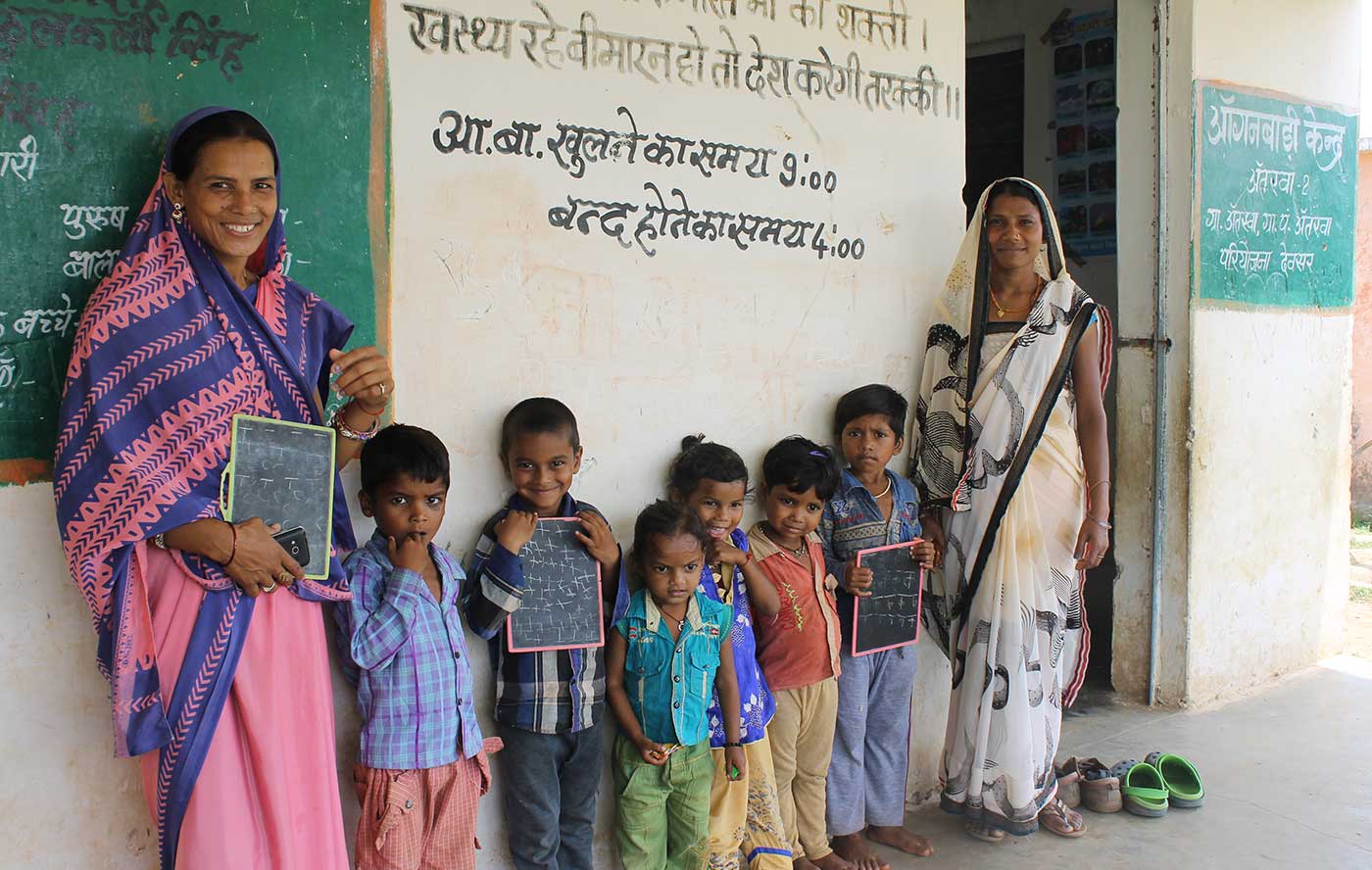
Photo Credit: Souparno Chatterjee
The momentum that Tara had built also spread to other villages. SHG members have started engaging with officials to get their Anganwadis operational on a regular basis.
Seeing the effectiveness of her centre, other Anganwadi instructors visit her to identify ways to improve learning outcomes and create a more conducive environment for all round physical and mental development of children.
“Nothing could have been possible if I had not been a part of the SHG and learnt different methods of engaging with people. It’s from there that I learnt how to engage with people better. Skills that I learnt from my SHG trainings helped me to conduct more interactive and entertaining sessions for children. I want my Anganwadi to be a model in the entire state of MP”, says Tara with a confident smile.
* Self Help Group (SHG) is usually a collective of 10-15 poor rural women, which meets periodically to save small sums of money. As this pool of money grows, they inter-loan to cater to emergency credit needs, thereby reducing their dependency on money lenders. SHGs also provide a platform where PRADAN engages with the community to improve their livelihoods, ensure year round food security and work on other pertinent issues.
Shy and quiet, Tara joined the Self Help Groups* (SHGs) facilitated by PRADAN nearly a decade back on the advice of her sister-in-law. She was newly married and a stranger in the village of Atarwa in Singrauli District of Madhya Pradesh. SHGs became the platform for solidarity and mutual support for Tara and other women. Being the only literate member in the group, she introduced her fellow women to letters and numbers, and taught them to sign their names.


